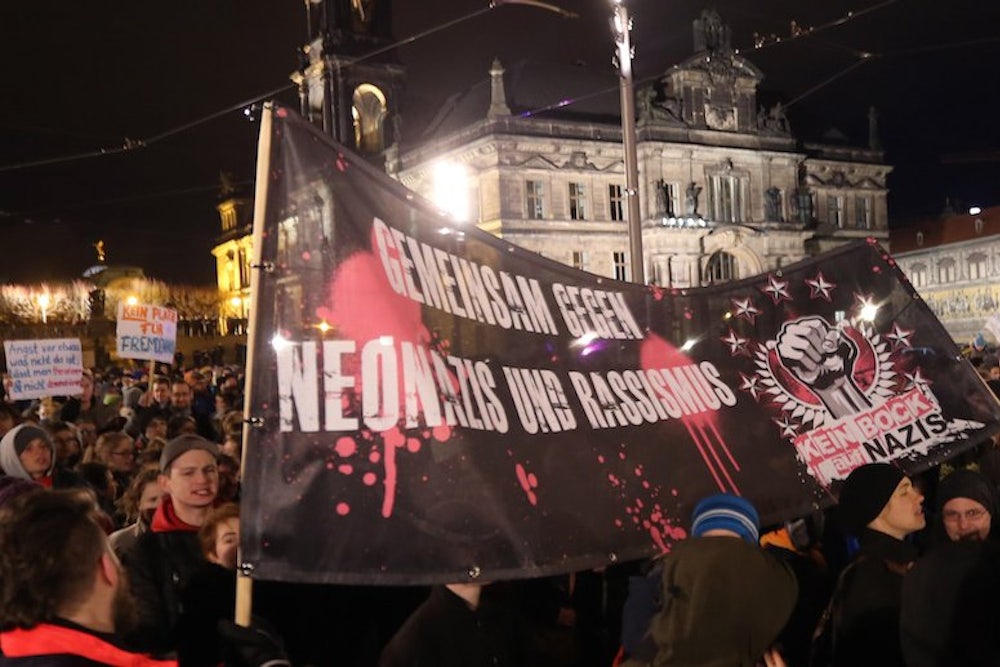On Wednesday, the leader of Germany’s growing anti-Islamization movement resigned after a photo of him styled as Adolf Hitler went viral. Lutz Bachmann, co-founder of PEGIDA, posted a picture on Facebook of himself at the barber’s, complete with Hitler’s hairstyle and mustache, along with the caption, “He’s back.”

Bachmann says he took the picture in order to mock his critics who have described him as a Nazi. Whatever his intention, you would think the leader of a German political movement would know better than to dress up like Hitler. The photo was a serious and uncharacteristic misstep for an organization that had, until now, been careful to distance itself from Nazism. This savvy strategy had helped PEGIDA appeal to a wider audience and be taken seriously by the German government. By appealing to ordinary, middle-class citizens' discontent with the growing number of Muslims and immigrants in Germany, PEGIDA has grown from a Facebook group of a few hundred to a movement numbering in the tens of thousands in just three months. A record 25,000 people marched in Dresden two weeks ago after the Charlie Hebdo attacks in Paris, and a recent poll showed that 34 percent of Germans agreed that their country is becoming increasingly Islamicized.
Despite clear overtures to Nazism, like the usage of the Nazi-era word “Lügenpresse” (liar press), and invocations of the “Vaterland” and “Volk,” PEGIDA has banned neo-Nazi symbols at its rallies and declared itself against “preachers of hate, regardless of what religion.” Its 19-point manifesto avoids racist language and says it opposes “radicalism whether religiously or politically motivated” and “hate speech against any religion.” In December, a speaker at a PEGIDA rally even began his speech by quoting Martin Luther King, Jr., speaking of his dream of the peaceful coexistence of people of all creeds and cultures.
German politicians, as well as the media, have been careful not to label PEGIDA as neo-Nazi, in part not to further alienate those middle-class citizens marching alongside the more radical members. Saxony Interior Minister Markus Ulbig, a member of Angela Merkel’s center-right party who represents the region where PEGIDA is most popular, told Spiegel: "We cannot label 10,000 people as right-wing extremists. That creates more problems than it solves. You can't toss them all into the same Neo-Nazi pot." Merkel herself harshly condemned the protestors in her New Year’s address, but also stopped short of calling them neo-Nazis.
This photo, however, could change that approach. Bachmann is playing the incident down by calling it a joke, but in Germany, Hitler jokes are definitely not funny. After the media broke the story on Wednesday, Bachmann defiantly changed his Facebook profile photo to one of Charlie Chaplin in The Great Dictator. The caption read: "He is allowed satire... Lutz is not."
